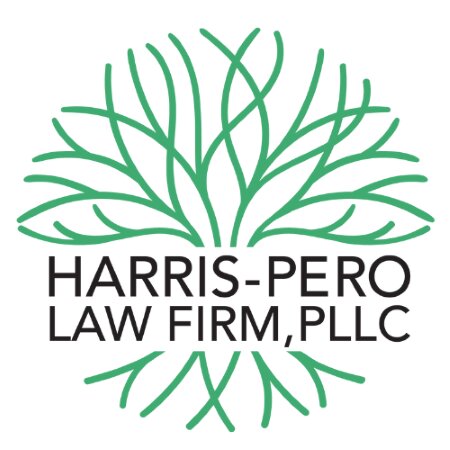Best Inheritance Law Lawyers in New York
Share your needs with us, get contacted by law firms.
Free. Takes 2 min.
Or refine your search by selecting a city:
List of the best lawyers in New York, United States
1. About Inheritance Law in New York, United States
Inheritance law in New York governs how a person’s assets are distributed after death. It covers wills, intestate succession, probate and administration, and the protection of heirs and beneficiaries. In New York, the Surrogate's Court handles probate and estate administration processes under the Estates, Powers and Trusts Law and the Surrogate's Court Procedure Act.
Key concepts include probate, which validates a will and appoints an executor, and administration when there is no valid will. The law also addresses how trusts interact with estates, fiduciary duties, and how debts and taxes are settled before distributions. Understanding these rules helps you protect your rights as a beneficiary or executor and avoid costly delays.
For official framework, New York statutes set the structure for probate and trust administration, while court procedures govern filing, notices, and accounting. See the Estates, Powers and Trusts Law (EPTL) and the Surrogate's Court Procedure Act (SCPA) for the core rules, and consult the NY Courts for probate process information. EPTL and SCPA are primary sources.
“Probate and estate administration are handled by the Surrogate's Court in New York.”
Source: New York State Unified Court System and official statutes cited above
2. Why You May Need a Lawyer
Hiring a New York inheritance lawyer can help you navigate complex rules and avoid delays or missteps. Below are concrete scenarios where legal guidance is essential.
- You are named executor or administrator and must file probate or letters testamentary in a New York Surrogate's Court, prepare an inventory, and manage debts. A lawyer ensures filings are correct and timely.
- You suspect the will is invalid or impaired by undue influence, coercion, or mental incapacity, and you want to challenge it or defend its validity in Surrogate's Court.
- There are multiple beneficiaries with disputes over asset allocation, real property, or hidden assets, requiring a formal accounting and conflict resolution.
- You own out-of-state assets and need multi-jurisdictional coordination for probate, asset transfer, and tax filings with New York authorities.
- The estate is large or tax-sensitive, potentially triggering New York estate tax or federal estate tax, requiring careful tax planning and filings.
- A surviving spouse seeks an elective share or statutory rights to a portion of the estate, and you need to assess eligibility and recovery options under NY law.
3. Local Laws Overview
New York relies on several key statutes to govern inheritance matters. These laws shape who may inherit, how estates are probated, and how assets are managed after death.
- Estates, Powers and Trusts Law (EPTL) - Sets rules for wills, trusts, fiduciary duties, and distribution of estates in New York. It defines how executors and trustees must act and how beneficiaries may enforce their rights. EPTL on the NY Senate site
- Surrogate's Court Procedure Act (SCPA) - Establishes the procedures for probating wills, issuing letters testamentary or of administration, and handling court accounting and notices. SCPA on the NY Senate site
- New York Tax Law - Estate Tax - Governs state-level estate tax filings, exemptions, and tax payment requirements in New York. See official guidance for current exemption amounts and filing rules. NY Department of Taxation and Finance: Estate Tax
Notes on changes and practical impact: state estate tax rules and exemptions have evolved with inflation adjustments and legislative changes. For the latest figures, consult the NY Department of Taxation and Finance and the NY Senate/EPTL texts.
“Estate tax rules can change with inflation adjustments and new legislation.”Official guidance and statutes cited above
4. Frequently Asked Questions
What is the Surrogate's Court and its role in NY?
The Surrogate's Court handles probate, administration, will contests, and trust issues in New York. It oversees the appointment of executors or administrators and approves estates' final settlements.
How do I probate a will in New York?
File a petition with the appropriate Surrogate's Court in the county where the decedent lived. You will request letters testamentary or letters of administration, depending on the will's existence.
What happens when there is no will in New York?
The decedent is treated as intestate. The court appoints an administrator to distribute assets according to NY intestacy statutes. Heirs may receive shares defined by law.
How long does probate typically take in New York?
Simple probate can take 6 to 12 months; complex estates may take 1 to 2 years or longer. Delays often occur due to asset discovery and creditor claims.
Do I need an attorney to probate a will in New York?
While not legally required, most estates benefit from an attorney. An attorney helps prepare filings, navigates court rules, and handles dispute resolution.
What fees can NY probate lawyers charge?
Fees vary by complexity and county. Attorneys may bill hourly or by a flat fee for straightforward matters, plus disbursements. Confirm fees in a retainer agreement.
When should I file for probate or estate administration in NY?
File soon after the decedent's death or once you know your role. Timely filings reduce creditor claim risk and potential penalties for late administration.
Where do I file probate petitions in New York?
File in the Surrogate's Court in the county where the decedent resided. The court will guide you through filing requirements and service rules.
Can I contest a will in New York and how?
Will contests allege lack of capacity, undue influence, fraud, or improper execution. A lawyer helps gather evidence, file the petition, and present claims in court.
Should I create a trust to avoid probate in New York?
Trusts can help manage assets and possibly avoid probate for certain property. An attorney can tailor a trust to fit family goals and tax considerations.
Do spouses have an elective share in NY?
Yes, New York provides rights for a surviving spouse to elect a share of the estate. A lawyer can determine eligibility and calculate the amount.
Is there a New York estate tax and how is it calculated?
New York imposes an estate tax on certain estates. Tax calculations depend on the gross estate, allowable deductions, and exemptions at filing.
5. Additional Resources
- New York Department of Taxation and Finance - Official guidance on estate tax filings, exemptions, and payment requirements. Estate Tax
- New York State Unified Court System - Official information about the Surrogate's Court process, probate, and estate administration. Surrogate's Court Information
- New York Estates, Powers and Trusts Law (EPTL) - Statutory framework for wills, trusts, and fiduciary duties. EPTL
6. Next Steps
- Gather essential documents within 2 weeks: death certificate, the last will and any codicils, asset inventory, and debt information.
- Identify the correct Surrogate's Court and determine whether you need a petition for probate or administration within 1-3 weeks after death.
- Consult a New York inheritance lawyer to review your situation and obtain a detailed retainer agreement within 1-2 weeks of the initial meeting.
- Prepare and file the petition for letters testamentary or letters of administration with the court, following court service requirements and deadlines.
- Arrange for an initial estate inventory and creditor notice, coordinating with the attorney to begin steps toward final accounting within 2-6 months.
- Work with the attorney to identify tax filing needs, including debt resolution and estate tax considerations, with deadlines outlined by the NY Department of Taxation and Finance.
- Monitor the estate's administration and plan for distribution once all debts, taxes, and court requirements are satisfied, typically within 9-24 months for ordinary cases.
Lawzana helps you find the best lawyers and law firms in New York through a curated and pre-screened list of qualified legal professionals. Our platform offers rankings and detailed profiles of attorneys and law firms, allowing you to compare based on practice areas, including Inheritance Law, experience, and client feedback.
Each profile includes a description of the firm's areas of practice, client reviews, team members and partners, year of establishment, spoken languages, office locations, contact information, social media presence, and any published articles or resources. Most firms on our platform speak English and are experienced in both local and international legal matters.
Get a quote from top-rated law firms in New York, United States — quickly, securely, and without unnecessary hassle.
Disclaimer:
The information provided on this page is for general informational purposes only and does not constitute legal advice. While we strive to ensure the accuracy and relevance of the content, legal information may change over time, and interpretations of the law can vary. You should always consult with a qualified legal professional for advice specific to your situation.
We disclaim all liability for actions taken or not taken based on the content of this page. If you believe any information is incorrect or outdated, please contact us, and we will review and update it where appropriate.
Browse inheritance law law firms by city in New York
Refine your search by selecting a city.















